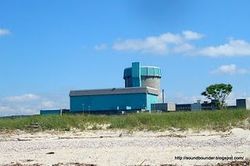
My own study of history tells me this is where it should have been all along. Political change follows economic change. It's based on economic demands.
What works in the marketplace demands an end to government subsidies of what no longer works, and it's this market power that drives the change, although historians seldom write things up that way because it sounds communist.
It's not. It's pure Adam Smith (right). Smith himself was a product of the Scottish Enlightenment, the intellectual movement that gave us the Industrial Revolution, the frameworks of democracy, and such religious movements as unitarianism. He based his work on the idea that most people are decent, even big businesspeople, and that problems are addressed best when they are turned into opportunities.
So there's a reason we haven't seen Al Gore lately. He's been looking at deals with John Doerr, preparing a Cox-like revenge, untold wealth for his children and grandchildren.
In business, you only seek publicity when you need it. When you want to attract capital, or sell something, then you seek publicity. Otherwise you stay silent.
Thus the question occurs, what does the Carbon War Room want?

It has put together what it calls a Green Capital Global Challenge, which seeks to do whole-city retrofits for energy efficiency.
Its Web site collects stories into feeds on relevant topics, and highlights actionable reports.
Mainly it wants to focus attention on the opportunities and give its leaders a chance to see the best ones first.
There is a lot to see.
Here are just a few stories from the last week I glanced at coming into work:
- China is moving to integrate solar energy into the design of new buildings.
- NASA has launched its first solar sail, which could lead to tests of orbiting solar power plants.
- The Department of Defense is testing solar concentrators at two military bases.
- HeliaTek of Germany has followed Konarka in delivering thin films with an efficiency of 8.3%.
- Princeton scientists have demonstrated a technique for replacing expensive indium in solar cells with plastic.
- And even failed companies are seeing their work picked up by others.
Instead of talking the language of war, the market is talking the language of profit. To the place being transformed a gold rush can look a lot like a war, and it's a gold rush we're now seeing in The War Against Oil.











“It’s a gold rush we’re now seeing in The War Against Oil.”
No. It’s a website by a person. That’s not a gold rush.
“It’s a gold rush we’re now seeing in The War Against Oil.”
No. It’s a website by a person. That’s not a gold rush.
If we were truely at war against oil, we would be focusing on alternatives. I like gold and silver. You can hold it in your hands.
I do not like gold and silver ‘represented’ by paper or held ‘safely’ in banks.
If we were truely at war against oil, we would be focusing on alternatives. I like gold and silver. You can hold it in your hands.
I do not like gold and silver ‘represented’ by paper or held ‘safely’ in banks.
I agree since there is oil price hike. Resourcefulness on alternatives is wiser idea. Thanks for ideas. Wise post. This article shoes upon concerns about economic situations. I love it. Thanks again.
I agree since there is oil price hike. Resourcefulness on alternatives is wiser idea. Thanks for ideas. Wise post. This article shoes upon concerns about economic situations. I love it. Thanks again.
Hi, I like reading your post, its every informative and very realistic. It only shows real problems at the present time. I for one believed that we have been dependent on fossil based energy. And if we continue with such practice, an inevitable energy crisis will appear. It high time that we think of alternatives. Even in small ways, like Solar Hot Water System for heating our water. This can definitely help us without burning our energy resources.
Hi, I like reading your post, its every informative and very realistic. It only shows real problems at the present time. I for one believed that we have been dependent on fossil based energy. And if we continue with such practice, an inevitable energy crisis will appear. It high time that we think of alternatives. Even in small ways, like Solar Hot Water System for heating our water. This can definitely help us without burning our energy resources.
“I for one believed that we have been dependent on fossil based energy. And if we continue with such practice, an inevitable energy crisis will appear.”
People have been saying that for 40 years with doom-predictions fading away the stated deadlines. Very painful for the authors of course, but nobody seems to care about false prophecies.
Fact is that the proven traditional energy resources are close to double what they were a few decades ago. Fact is also that ‘renewable’ energy sources are too expensive (signalling that it takes more energy to create those resources than traditional energy resources).
Renewable energy is a sissy hobby from idealists who don’t want to feel the pain of reality meeting their prior failed ideals, like Obama. And this will pass too. Reality is a great thing. If/once it becomes efficient to use solar etc. – great. Until then – steady as she goes, fill ‘er up please.
“I for one believed that we have been dependent on fossil based energy. And if we continue with such practice, an inevitable energy crisis will appear.”
People have been saying that for 40 years with doom-predictions fading away the stated deadlines. Very painful for the authors of course, but nobody seems to care about false prophecies.
Fact is that the proven traditional energy resources are close to double what they were a few decades ago. Fact is also that ‘renewable’ energy sources are too expensive (signalling that it takes more energy to create those resources than traditional energy resources).
Renewable energy is a sissy hobby from idealists who don’t want to feel the pain of reality meeting their prior failed ideals, like Obama. And this will pass too. Reality is a great thing. If/once it becomes efficient to use solar etc. – great. Until then – steady as she goes, fill ‘er up please.
yeah…imagine in the long term the affects of using traditional fossil fuel. the time is now!!! we must find ways to obtain alternative energy sources and incorporate equipments and gadgets that push the advocacy for green living. I for one have been using Solar Heating Systems not only is it budget saving but also eco friendly.
yeah…imagine in the long term the affects of using traditional fossil fuel. the time is now!!! we must find ways to obtain alternative energy sources and incorporate equipments and gadgets that push the advocacy for green living. I for one have been using Solar Heating Systems not only is it budget saving but also eco friendly.